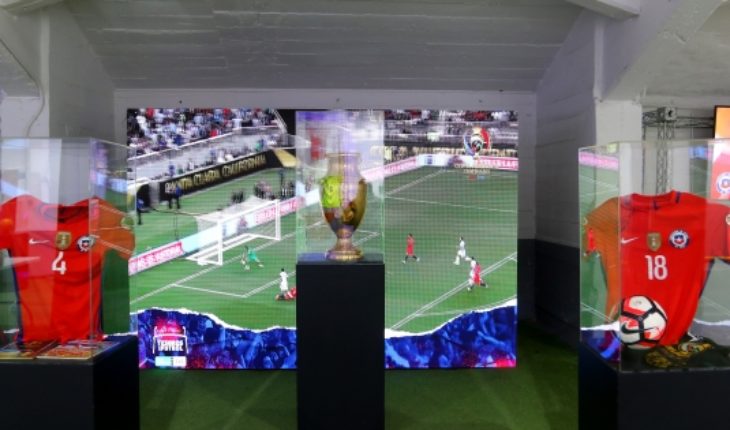Chilean football is no longer a conglomerate of clubs competing to achieve sporting glories and accumulate fans and stars on their flags. The impression is that now your priority is to add millions in your accounts or stock stakes to deliver dividends to your shareholders. It has become an embedded industry in the prevailing market economy, but unlike joint ventures, which invest heavily to compete and survive, lives almost for free, thanks to state institutions.
The feeling is that clubs don’t care so much about the show they should offer, unless the billboards surrounding the courts look on tv screens.
The tournaments have gradually become a television show, through an exclusive payment channel and that generously contributes to the finances of the clubs, for many of which is almost the only source of funding.
In this context, they should not be surprised by the decisions taken in recent weeks by the Council of Presidents of the National Professional Football Association (ANFP), the highest resolution body in Creole football, which one week decided to abolish promotions and club relegations after early closure of the 2019 season, using as a pretext the social earthquake that has plagued the country since mid-October. There are no minimum security conditions to ensure the development of the parties, the regents ruled.
Thus, they condemned Santiago Wanderers and San Marcos de Arica not to ascend to the honor series and the First B, respectively, with the consequent protests of both institutions. But at the same time, they saved some top clubs from losing the category and widened entry to international tournaments.
To be erased with the elbow
A week later, all or almost all agreements went into oblivion. By overwhelming majority Wanderers was promoted to the honor series and San Marcos to First B, with some protests and threats to resort to the courts, sporting or not, in search of justice, from other clubs that felt harmed.
In order for two to be promoted to honor, the leaders invented a slout between eight teams, the winner of which must define the second promoted against Deportes La Serena, ranked after Santiago Wanderers in the tournament.
A leader of Cobreloa reflected sensibly. “If you can play, why don’t we complete the championship?” he raised, without anyone hearing it.
A final decision is also expected for the team that will go as Chile 4 to the Copa Libertadores 2020. In principle, they should contest the Spanish Union and University of Chile cup, as finalists of the Copa Chile. But the Hispanic club opposes it, as the university team was penultimate when the tournament was closed and would be “technically” relegated.
Unión La Calera also claims its right to that quota and announces that it will resort to the courts to defend it.
The fundamental reason for the eagerness to reach international tournaments is the money that the South American Football Confederation (Conmebol) distributes among the participating teams and that increases if they manage to overcome one or more stages of the competition.
On the court, Chilean teams have not achieved outstanding performances in the Libertadores or the Copa Sudamericana for several years, because they arm short-term squads and each year they sell their best players.
An industry with little expense
Decisions such as those taken in recent weeks are not uncommon in Chilean football, an industry that absorbs a lot from state institutions and invests very little to organize attractive tournaments, which attract crowds to stadiums. The proceeds from the Football Channel are enough for them.
After the closing of the 2019 season, most clubs began to fire technicians or players, to save. Even the possibility of playing an international tournament does not encourage them to hire top-tier footballers, and those who arrive from time to time leave soon, picked up by foreign clubs of better future.
Chilean football is an industry that does not invest in security. That responsibility is left to the state, through Carabineros. This has remained obscure links between some clubs and bars, which move with impunity in the stadiums and can even, as has been seen, cause the suspension of matches or the paralysis of tournaments.
With few exceptions, Chilean clubs do not have stadiums, and tournaments are played in municipal or tax precincts. Again state institutions enable the management of a private industry.
In this context the question is raised, whether any authority will take the bull by the horns and monitor these organizations in order to reorder the activity, with new rules that make clear the limits of rights and obligations.
In the meantime, the leaders rub their hands because they think football will return to its normal channel. The truth is that the social outburst so far gives few signs of loosening and there is no assurance that the stadiums will reopen their doors within the deadlines set by the regents.
The content poured into this opinion column is the sole responsibility of its author, and does not necessarily reflect the editorial line or position of El Mostrador.




